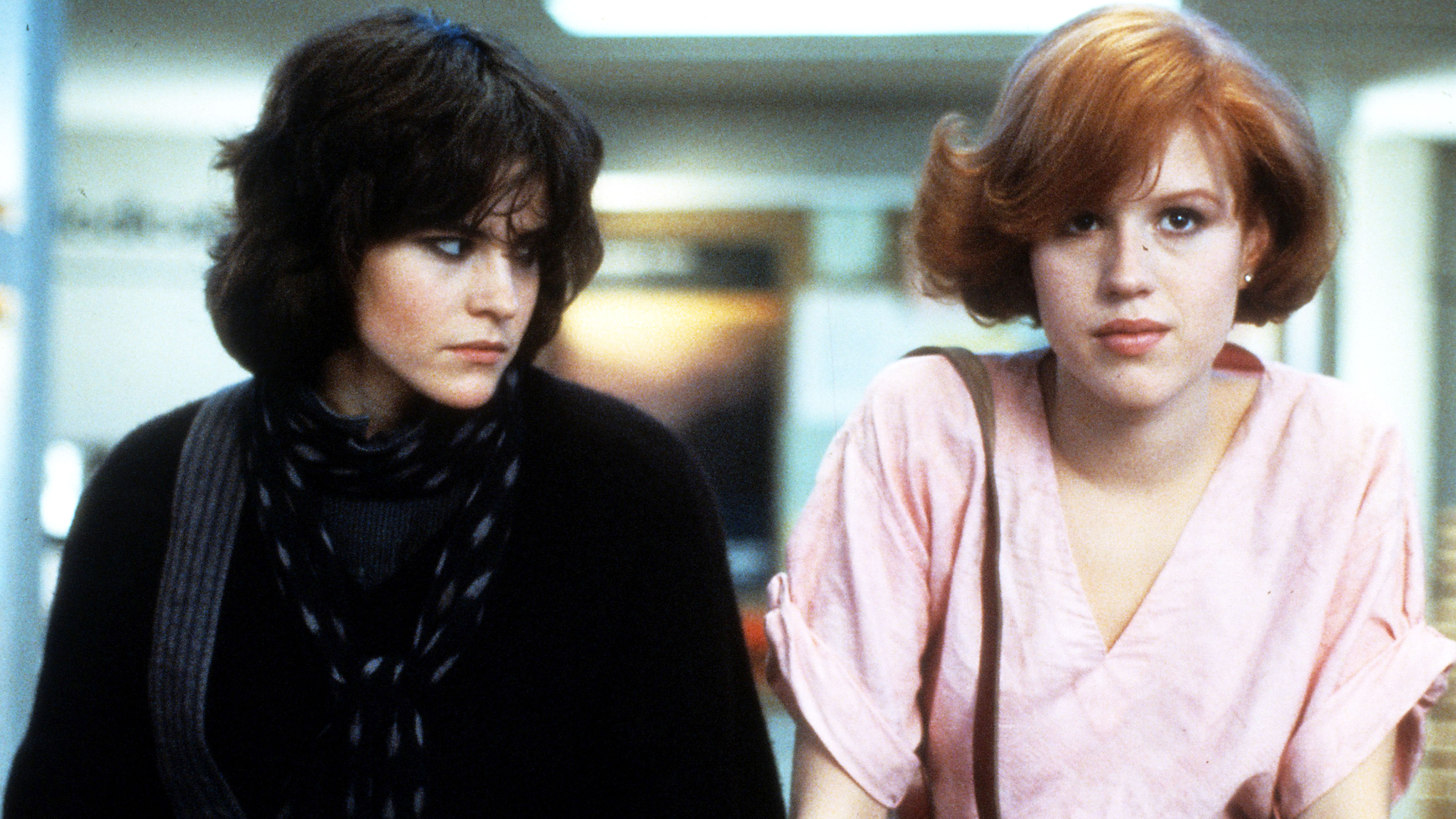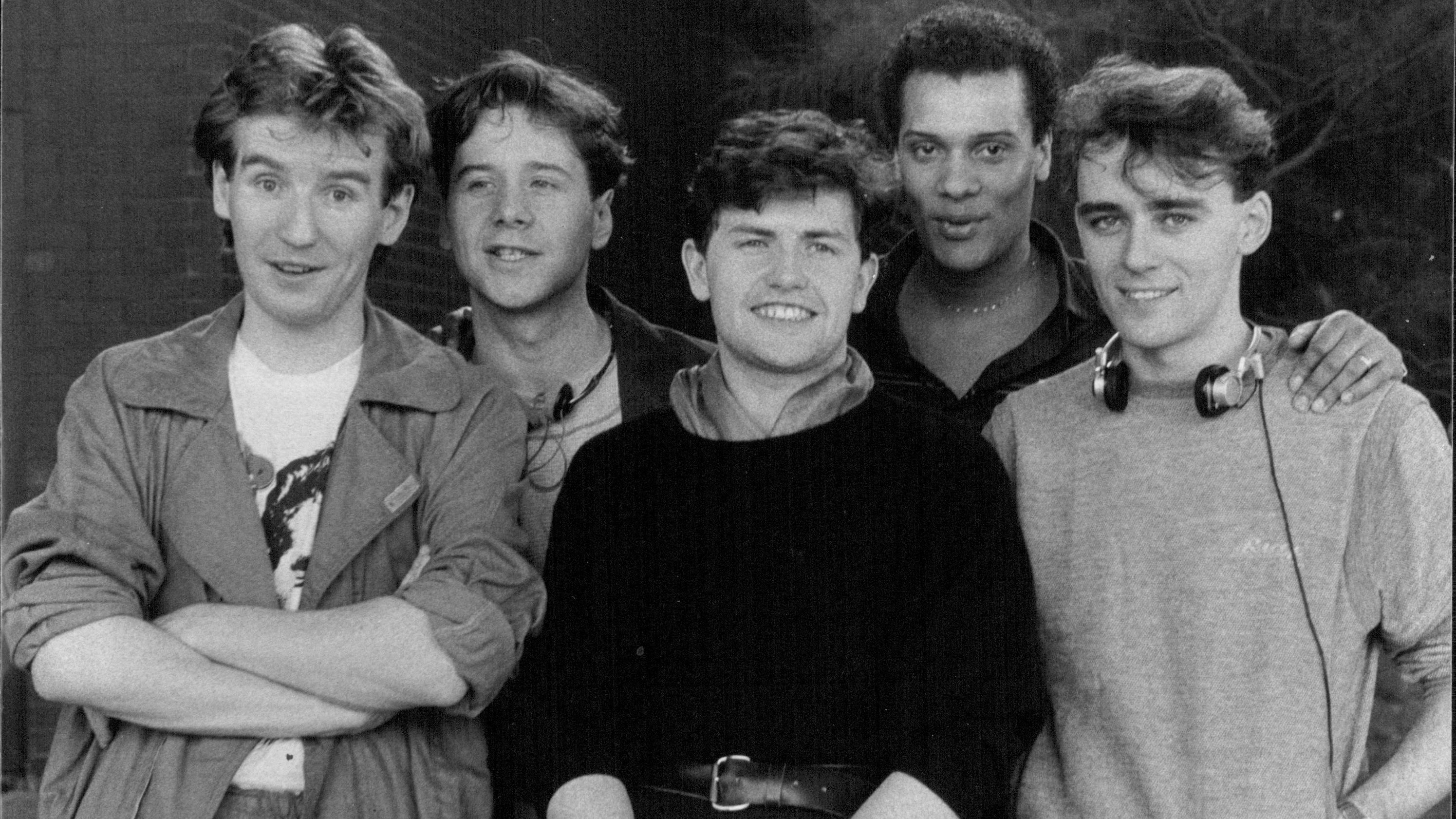"We’re thinking, why would we do someone else’s song? Why can’t you take one of our songs?": How Simple Minds' Don't You (Forget About Me) eventually became the perfect meeting of worlds – but two other stars turned it down first

There is a select echelon of songs in popular music that are synonymous with the cinematic moments they soundtrack, where they become eternally intertwined in the mind's eye… and ear. Case in point: Don't You (Forget About Me). It bookends one of the key coming-of-age films of all time, 1985 classic The Breakfast Club – a reflection of director John Hughes keen ear for the then-emerging new wave. It's almost inconceivable that Simple Minds wanted nothing to do with it at first.
But take away hindsight, from singer Jim Kerr's perspective at the time, it was actually understandable.
"The song that they brought to us sounded pretty good but it didn’t really sound like ours," Kerr reasoned to Forbes in 2018 regarding the Keith Forsey and Steve Schiff -written song. "And we’re thinking, why would we do someone else’s song? Why can’t you take one of our songs?” And they were saying, “But this has been written for the movie…” And it took us a while to come around."

Kerr's bandmate and songwriting compadre, guitarist Charlie Burchill explained that the band also felt a disconnect towards the pitch of the film itself.
"When we first heard about it, we couldn’t really relate to it because it’s about American high-school students," he reflected to Under The Radar Mag. "Detention on a Saturday and all of this type of stuff."
At the time the band had already written material of their own for the forthcoming album Once Upon A Time that they had hopes of connecting to an American audience with – including the song Live And Kicking. The idea of recording someone else's song seemed like a move in the wrong direction. But the sheer enthusiasm of Forsey (a British producer and drummer who had played a series of Giorgio Moroder albums) and Hughes began to chip away at their initial resistance.
Jim met John Hughes, the director, in London and he loved him
Charlie Burchill
"Jim met John Hughes, the director, in London and he loved him," added Burchill. "We loved Keith who wrote the song. They showed us some rough clips of the movie with the demo of the song included in a little private cinema."
Want all the hottest music and gear news, reviews, deals, features and more, direct to your inbox? Sign up here.
Kerr was especially taken with Hughes's genuine enthusiasm for the band, and what was going on around them in the UK at the time. "John particularly was a fan of the sounds," Kerr told Forbes. "He sprinkled the sounds of what was coming out of the UK throughout his movies then. Whether it was Psychedelic Furs or Orchestral Manoeuvres in the Dark. He loved those sounds."
The trans-Atlantic connection worked for Hughes and his audiences, but the Glasgow band were still unsure. They were, by Kerr's own admission, "hedging our bets". Burchill felt they already had the songs to make headway into America.
We just went with it, rattled the song out in an afternoon
"It wasn’t that we didn’t like it," he told Guitarist magazine in 2023. "It was just that, at the time, we’d just written an album [1985’s Once Upon A Time], we were going to work with Jimmy Iovine and we felt that we had real songs there – y’know, we had three Top 5 hits in the States from that album."
But that was all still to come. Eventually, Forsey's connection with the band helped win through the doubts – Burchill remembers how they "absolutely loved him". We just went with it, rattled the song out in an afternoon – and there you go, Murphy’s law.” But Forsey and Hughes were certainly not the only factor in persuading Simple Minds to record the song.
The idea that Hughes and Forsey picked out a Scottish band and handed them the key to breaking America is a romantic idea, but as we've found before, the reality with hit songs can be very different to such notions. Apart from their own initial reluctance, Simple Minds were reportedly not the first artists to be approached to record Don't You (Forget About Me).
Brian Ferry reportedly turned it down (Forsey has denied rumours it was offered to Billy Idol - who he had produced and Idol did later record the song), as did Pretenders singer and Kerr's then-wife Chrissie Hynde. At the time she was pregnant with the couple's daughter and the timing wasn't right, but she was savvy in hearing the potential and pushed Kerr to meet with Forsey.
I added the big 'la, la-la-la-la' ending because I didn’t have any lyrics
Jim Kerr
‘I like the song,’ she said. What’s the problem?’ "Kerr recalled to the Guardian in 2016. "Finally… Keith Forsey phoned me and rather cleverly said: ‘I’m a huge fan of the band. How about I just spend a couple of days with you? Maybe we’ll do something in the future."
When they did, Kerr's ad-lib in the studio proved to be a key addition to Forsey's framework. "I added the big “la, la-la-la-la” ending because I didn’t have any lyrics," the singer admitted to the Guardian. I said I’d write some, but Keith said: 'Over my dead body. We’re keeping that.'" Credit must also be given to Burchill for elevating the intro part with added weight – so effective it's repeated later in the song.
"We’d just finished Sparkle In The Rain, the biggest, most bombastic album we’d done," Burchill told The Guardian. "So when it came to Don’t You (Forget About Me), I ramped up the intro with these massive power chords. It was almost a caricature – I associated power chords with American AOR. But it worked."
Despite the initial misgivings, the band had made the song their own – a transcendent slice of pop-rock finesse fit for stadium singalongs. But Simple Minds had no idea the results of the session would be used as the main song in the film.
The Breakfast Club was released three months later, launching young actors Emilio Estevez, Molly Ringwald, Anthony Michael Hall, Ally Sheedy and Judd Nelson to worldwide acclaim. A huge commercial success, the film grossed $51 million from a $1 million budget. And Don't You (Forget About Me) took Simple Minds to the top of the US Billboard chart the same year. High chart placings followed around the world, with a victorious appearance at the US Live Aid in Philadephia on 13 July.
The dramatic change of fortunes from where the band had been in Glasgow several years earlier was certainly not lost on Kerr.
"Eight years earlier, in 1977, I’d asked my dad for £100 so we could start the band," he told The Guardian. He was a brickie’s labourer and just sat there in his vest, like Rab C Nesbitt, thinking we were nuts. “You mean like the Beatles,” he said, “playing in stadiums?” I said: “Probably.” When we performed Don’t You (Forget About Me) in Philadelphia for Live Aid in 1985, my dad was down the front. It was the first of many stadiums – although he never got the £100 back."
"We were given an opportunity to have a way into America, even though none of it fitted anything to do with Simple Minds," reflected Charlie Burchill to Under The Radar. "Nonetheless, we loved the guy that wrote the song. We could hear in the demo that in some way we could make that a Simple Minds song. We could eventually put our stamp all over it, which we did."

Rob is the Reviews Editor for GuitarWorld.com and MusicRadar guitars, so spends most of his waking hours (and beyond) thinking about and trying the latest gear while making sure our reviews team is giving you thorough and honest tests of it. He's worked for guitar mags and sites as a writer and editor for nearly 20 years but still winces at the thought of restringing anything with a Floyd Rose.






